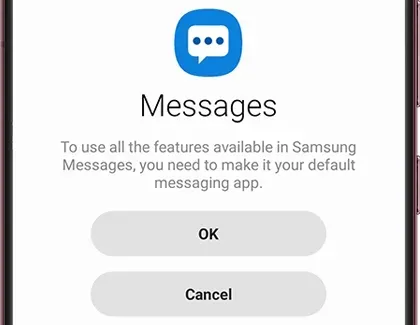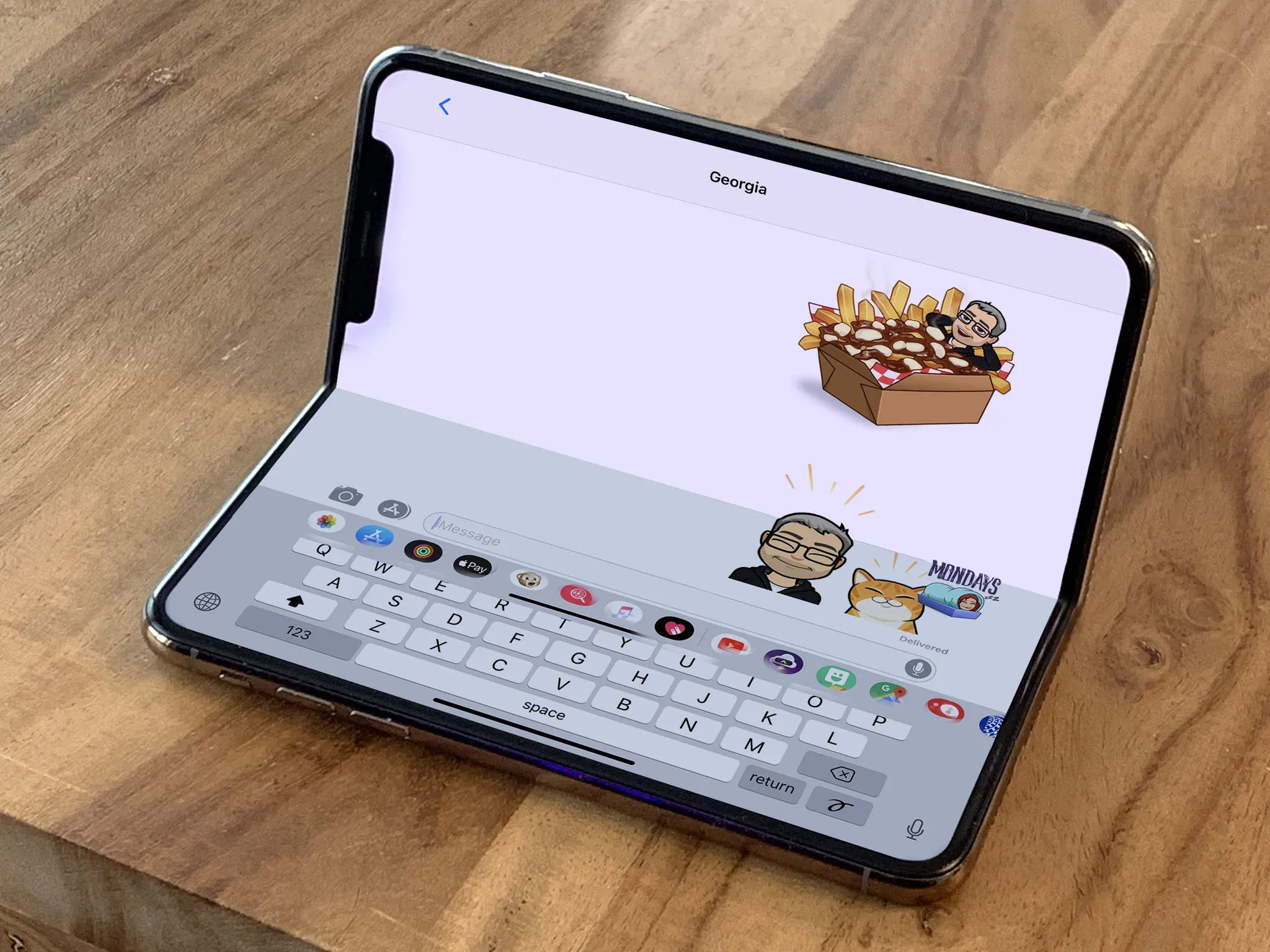As Samsung transitions towards a more integrated experience, the Samsung Messages replacement marks a significant shift in how users communicate on their devices. With the recent launch of the Galaxy S25, Samsung has officially retired its longstanding messaging app, urging users to embrace Google Messages instead. This change not only reflects Samsung’s commitment to enhancing RCS messaging capabilities but also aligns with the growing trend of adopting more efficient texting alternatives. By prioritizing Google Messages, Samsung aims to provide a streamlined messaging experience that enhances user connectivity and security. The absence of Samsung Messages from the Play Store leaves Galaxy S25 users with Google Messages as their primary option, solidifying its role in the future of Samsung’s messaging ecosystem.
In the ever-evolving landscape of mobile communication, the move away from the Samsung messaging app symbolizes a broader trend toward unified messaging solutions. As Samsung phases out its proprietary texting service, users are increasingly encouraged to utilize platforms like Google Messages for their communication needs. This shift is particularly evident with the introduction of the Galaxy S25, which signifies a new era for messaging on Samsung devices. Emphasizing RCS messaging features, the transition not only enhances the user experience but also offers a secure alternative for texting. As users seek out effective solutions for their messaging needs, this change invites exploration of new platforms that promise improved functionality and integration.
The Shift from Samsung Messages to Google Messages
With the introduction of the Galaxy S25 series, Samsung has made a significant shift in its messaging strategy by phasing out Samsung Messages in favor of Google Messages. This transition has been in the works for some time, as Samsung has slowly been encouraging users to adopt Google’s messaging platform. By discontinuing its own app, Samsung aims to streamline the user experience and enhance messaging capabilities through the integration of RCS messaging, which offers richer features compared to traditional SMS.
The decision to retire Samsung Messages is a clear indication of the company’s commitment to promoting Google Messages as the primary messaging service for its flagship devices. This change not only impacts new Galaxy S25 users, who will find no option to download the Samsung Messages app, but also raises questions for those with older models. While users of previous Samsung devices may continue using the app, the lack of support and potential loss of features may encourage many to make the switch to Google Messages.
Benefits of Using Google Messages
Google Messages offers numerous advantages over Samsung Messages, particularly with its support for Rich Communication Services (RCS). RCS messaging facilitates a more interactive and engaging conversation experience, allowing users to send high-resolution images, read receipts, and engage in group chats seamlessly. This enhanced functionality is particularly important for users who frequently text across different platforms, as Google Messages ensures compatibility and consistency.
Furthermore, Google Messages is regularly updated, providing users with new features and security enhancements. Unlike Samsung Messages, which may become outdated and unsupported, Google’s messaging app is designed to evolve with user needs and technological advancements. As Samsung continues to phase out its messaging app, users are encouraged to adopt Google Messages not only for its features but also for the peace of mind that comes with using a well-supported and secure platform.
Exploring Texting Alternatives to Samsung Messages
With the retirement of Samsung Messages, users seeking alternatives have a plethora of options to choose from. Messaging apps like WhatsApp, Signal, and Telegram have gained popularity for their unique features, including end-to-end encryption, multimedia sharing, and customizable chat options. These alternatives not only provide robust messaging capabilities but also cater to different user preferences and security needs.
Additionally, many of these texting alternatives integrate well with various operating systems, making it easier for users to connect with friends and family regardless of their device. As Samsung users adjust to the absence of Samsung Messages, exploring these alternatives can enhance their messaging experience and offer functionalities that surpass traditional SMS. Whether it’s through RCS messaging on Google Messages or more secure options like Signal, users have plenty of choices to stay connected.
RCS Messaging: The Future of Texting
RCS messaging represents the next evolution in text communication, offering a suite of features that traditional SMS cannot match. Users can enjoy high-quality media sharing, read receipts, typing indicators, and group chats—all of which contribute to a more dynamic messaging experience. As Samsung transitions away from its messaging app, the adoption of RCS through Google Messages is set to redefine how users interact with one another.
The shift to RCS messaging ensures that users can communicate across devices and platforms without losing functionality, making it an appealing option for those who frequently text between different operating systems. With Google Messages leading the charge in RCS adoption, users can expect a future of robust messaging capabilities that enhance connectivity and enrich conversations, solidifying Google’s role in the messaging landscape.
Samsung’s Collaboration with Google: A New Era
The collaboration between Samsung and Google signifies a strategic move towards unifying the messaging experience on Android devices. By promoting Google Messages as the default messaging app, Samsung is aligning its services with Google’s advanced technology and innovation. This partnership not only benefits Samsung users but also enhances the overall Android ecosystem by providing a consistent and feature-rich messaging platform.
As the Galaxy S25 series rolls out, users can expect seamless integration between their devices and Google Messages, allowing for efficient communication without the fragmentation that can occur with multiple messaging apps. This shift underscores the importance of collaboration in the tech industry, as companies work together to deliver better services and improve user experiences across various platforms.
The Impact of Samsung Messages Discontinuation on Users
The discontinuation of Samsung Messages has raised concerns among users, particularly those who have relied on the app for their texting needs. With the app no longer available for download and its features potentially being stripped away, users are left in a vulnerable position. For many, switching to Google Messages or another alternative may feel overwhelming, especially if they have grown accustomed to Samsung’s messaging interface.
However, this change also presents an opportunity for users to explore new features and functionalities that Google Messages and other apps offer. Embracing this transition can lead to a more enhanced and secure messaging experience, as users adapt to the evolving landscape of digital communication. The key for users is to remain open-minded and willing to explore these alternatives, ensuring that their texting needs continue to be met.
User Experiences with Google Messages
User feedback regarding Google Messages has generally been positive, highlighting the app’s intuitive design and rich feature set. Many users appreciate the ease of use and the seamless integration of RCS messaging, which brings a level of interactivity to conversations that was previously unavailable with traditional SMS. The ability to send high-resolution images, see when contacts are typing, and receive read receipts has transformed the texting experience for many.
As users transition from Samsung Messages to Google Messages, they are discovering the benefits of a more robust messaging platform. The support for cross-platform communication and the regular updates ensure that Google Messages remains relevant and user-friendly. This positive user experience is essential in encouraging Samsung users to embrace the change and fully utilize the features available through Google Messages.
Security Concerns with Samsung Messages
One of the major concerns raised by the discontinuation of Samsung Messages is the security of the app for existing users. With Samsung officially stopping support for its messaging app, users can no longer expect timely updates or security patches, leaving their conversations vulnerable to potential breaches. As seen with some Verizon users who were notified that RCS support would cease, the risks associated with using an unsupported app are significant.
In contrast, Google Messages provides a more secure messaging environment, with regular updates and enhanced security features. By migrating to Google Messages, users can benefit from the peace of mind that comes with knowing their conversations are protected. This emphasis on security is crucial as users navigate the changing landscape of messaging apps and seek to ensure their data remains safe.
The Future of Messaging on Android Devices
The future of messaging on Android devices looks promising with the shift towards Google Messages and the adoption of RCS. As more manufacturers and service providers embrace RCS, users can expect a more unified and enhanced messaging experience across devices. This evolution will not only improve communication but also pave the way for innovative features that will redefine how users interact with one another.
With Samsung’s decision to phase out its messaging app, it is evident that the industry is moving towards a more collaborative and integrated approach to messaging. As Android continues to evolve, users can look forward to a future where messaging is more secure, feature-rich, and user-friendly, ultimately enhancing the overall communication experience on mobile devices.
Frequently Asked Questions
What is the reason for the discontinuation of Samsung Messages on the Galaxy S25?
Samsung is discontinuing the Samsung Messages app to promote the adoption of Google Messages, which offers enhanced features like RCS messaging. This transition aligns with Samsung’s strategy to phase out its messaging app and streamline services into Google Messages.
Can I still use Samsung Messages if I have it installed on my Galaxy S25?
Yes, users who have Samsung Messages installed on their Galaxy S25 can continue using the app. However, it may eventually lose functionality and support, making Google Messages a more reliable option for messaging.
What are the benefits of switching to Google Messages from Samsung Messages?
Switching to Google Messages offers several benefits, including better support for RCS messaging, enhanced security, and improved user experience across various devices. Google Messages also provides a more consistent and updated platform for texting.
Are there any alternatives to Samsung Messages for Galaxy S25 users?
Yes, Galaxy S25 users can explore other texting alternatives, but Google Messages remains the primary recommendation due to its advanced features and support for RCS messaging.
Will Samsung Messages be removed from older devices?
No, Samsung Messages will not be removed from older devices that already have the app installed. Users can continue to use it, although they may face limitations and lack of support over time.
What is RCS messaging and how does it relate to Google Messages?
RCS (Rich Communication Services) messaging is an upgrade to traditional SMS that provides richer features like read receipts, high-resolution media sharing, and group chat functionalities. Google Messages supports RCS, making it a superior choice compared to the now-discontinued Samsung Messages.
How does the partnership between Samsung and Google affect messaging on Galaxy devices?
The partnership between Samsung and Google has led to the integration of Google Messages as the default messaging app on Galaxy devices, ensuring access to the latest features and improved messaging experiences, particularly with RCS.
Is the Samsung Messages app available for download after the Galaxy S25 launch?
No, the Samsung Messages app has been removed from the Play Store, and Galaxy S25 users do not have the option to download it. Users are encouraged to switch to Google Messages for their texting needs.
What should I do if I experience issues with Samsung Messages on my device?
If you encounter issues with Samsung Messages, it is advisable to transition to Google Messages for a more reliable messaging experience, as Samsung Messages may face future limitations and lack of support.
How will the discontinuation of Samsung Messages affect my messaging experience?
The discontinuation of Samsung Messages may lead to a decline in functionality, security, and support for users still using the app. Transitioning to Google Messages will provide a more secure and feature-rich messaging experience.
| Key Point | Details |
|---|---|
| Samsung Messages Retirement | Samsung is officially discontinuing its messaging app, Samsung Messages, to encourage the use of Google Messages. |
| Google Messages Adoption | Samsung is migrating all services to Google Messages, enhancing the user experience with RCS features. |
| Availability | Samsung Messages is no longer available in the Play Store; Galaxy S25 users have no option to download it. |
| Older Devices | Users with older devices can still use Samsung Messages, but its functionality may be reduced over time. |
| Security Concerns | Samsung Messages will not be officially supported, raising security issues for users still using the app. |
Summary
Samsung Messages replacement is now a reality as the company officially phases out its messaging app in favor of Google Messages. This transition emphasizes a shift towards a more unified messaging experience, leveraging the advanced features of Google Messages, particularly for RCS messaging. Users are encouraged to embrace this change, as Samsung no longer provides support for its own app, which could lead to security vulnerabilities and a lack of essential features. The move marks a significant step in enhancing user engagement and satisfaction, aligning with modern messaging standards.










